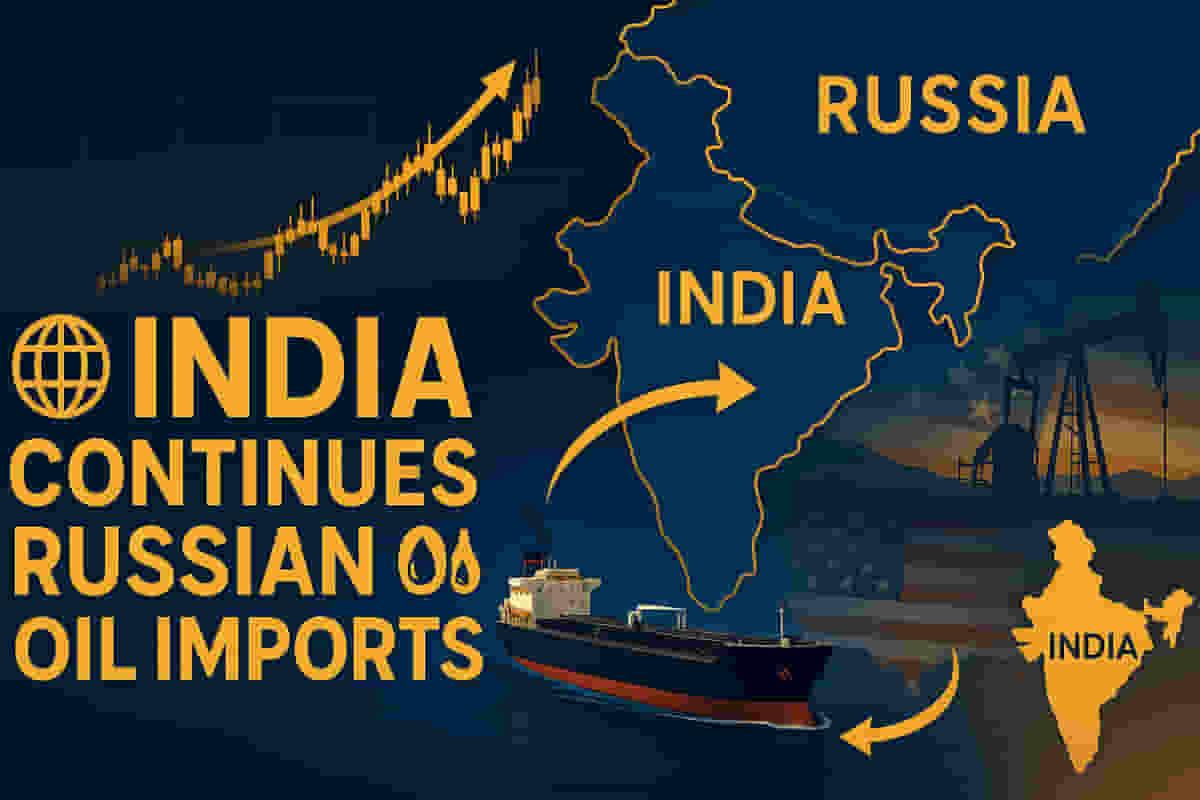India to Continue Russian Crude Oil Imports Amidst US Sanctions, S&P Global Reports Tightening Diesel Supply
Energy
|
30th October 2025, 1:35 PM

▶
Stocks Mentioned :
Short Description :
Detailed Coverage :
India is poised to continue its crude oil purchases from Russia, despite new US sanctions against Russian energy giants Rosneft and Lukoil that come into effect from November 21. S&P Global Commodity Insights reports that Russian crude accounts for a significant 36-38 percent of India's total oil imports, and China also continues its substantial trade with Russia. These two Asian giants collectively take up to 80 percent of Russia's crude oil exports. While they plan to gradually replace some Russian crude with supplies from the Middle East and the United States, an immediate halt is not anticipated.
The global energy market faces potential disruption as crude trade patterns shift. S&P Global Commodity Insights warns that the anticipated restocking of diesel ahead of the European Union's upcoming sanction package (effective January 21, 2026) could tighten global diesel supply. China's crude inventory might also decline due to feedstock adjustments.
"This is expected to be bullish for crude oil, particularly for Middle Eastern and American grades, which India and China will increasingly purchase to replace Russian crude," S&P Global Commodity Insights stated. The resulting ripple effect may tighten diesel supply and the availability of bunker ships.
According to S&P Global Commodities at Sea data, Rosneft and Lukoil collectively exported approximately 1.87 million barrels per day of crude via seaborne routes primarily to India and China over the past year, with Rosneft also sending around 800,000 b/d to China via pipeline. While replacing this volume is challenging, India and China are expected to turn to Middle Eastern suppliers, and potentially explore options from Brazil, Canada, and the US, though high freight costs could limit arbitrage opportunities.
Wang Zhuwei, Director of Research and Analysis at S&P Global Commodity Insights, noted that crude feedstock reshuffling and diesel restocking before winter and the EU's 18th sanction could tighten diesel supply from India. Affected Chinese oil refineries might lower crude inventories to manage potential feedstock shortages.
Indian Oil Corporation Limited, India's largest crude oil refiner and auto fuel retailer, has confirmed it will continue procuring Russian crude through non-sanctioned channels, emphasizing that India's crude supply remains secure due to ample global availability. The global oil trade is complex and not always governed by simple rules.
Impact This news has a significant impact on the Indian stock market, particularly on companies in the energy, refining, and transportation sectors. Fluctuations in crude oil prices directly affect inflation, refining margins, and consumer fuel prices. The shift in sourcing and potential supply tightening could influence the profitability and operational strategies of Indian oil companies. The overall stability of India's energy security is also a key concern for investors. Rating: 8/10
Difficult Terms: * Crude oil: Unrefined petroleum, the raw material from which gasoline, diesel, and other products are made. * Sanctions: Penalties imposed by countries on other nations, typically in the form of trade restrictions or financial limitations, to exert political pressure. * OPEC+: Organization of the Petroleum Exporting Countries and its allies, a group of oil-producing countries that coordinate production levels to influence global oil prices. * Crude inventory: The amount of crude oil stored by countries or companies, serving as a buffer against supply disruptions or price volatility. * Feedstock: Raw material used in industrial processes, such as crude oil for refineries to produce fuels. * Bunker ships: Ships that transport fuel to other vessels, often at ports. * Arbitrage opportunities: Chances to profit from price differences of the same asset in different markets. * Seaborne routes: Shipping lanes or waterways used for the transportation of goods by sea. * Tariff war: A trade dispute where countries impose taxes (tariffs) on each other's imported goods, leading to retaliatory measures. * GATT: General Agreement on Tariffs and Trade, an international agreement signed in 1947 to promote international trade by reducing or eliminating tariffs, quotas, and other trade barriers. It was later superseded by the World Trade Organization (WTO).